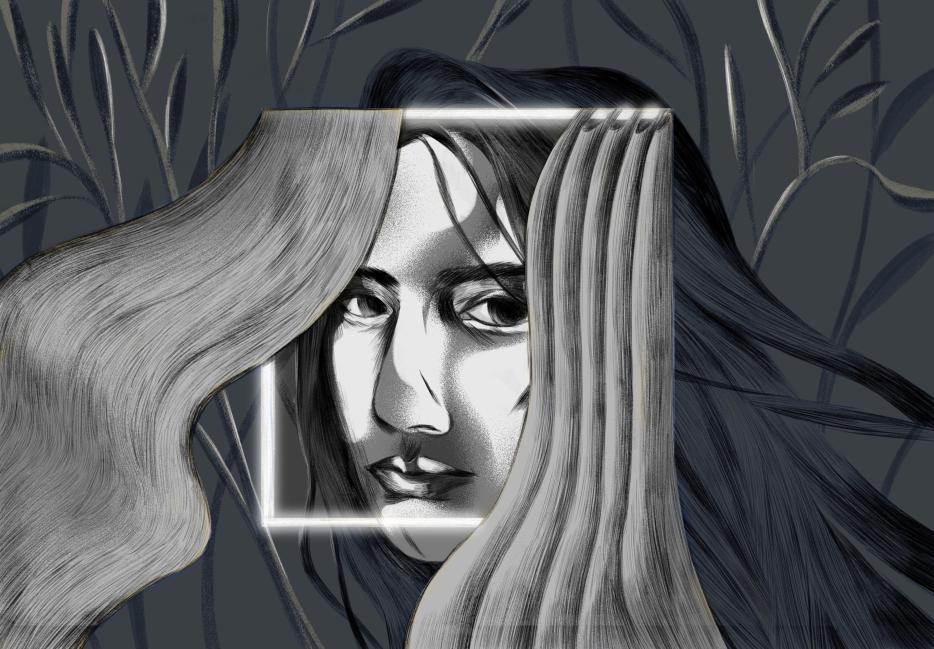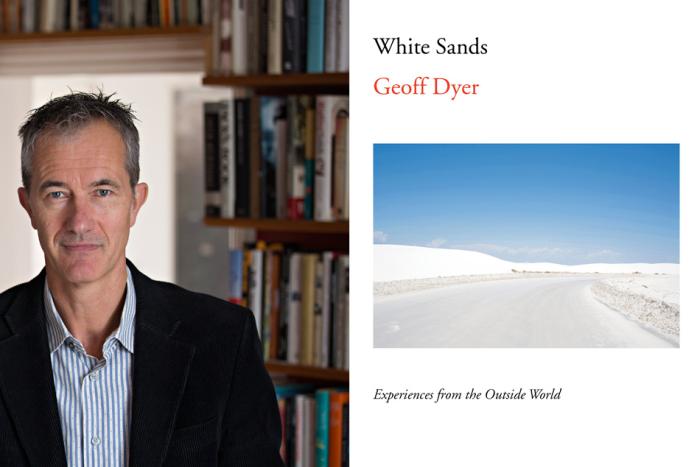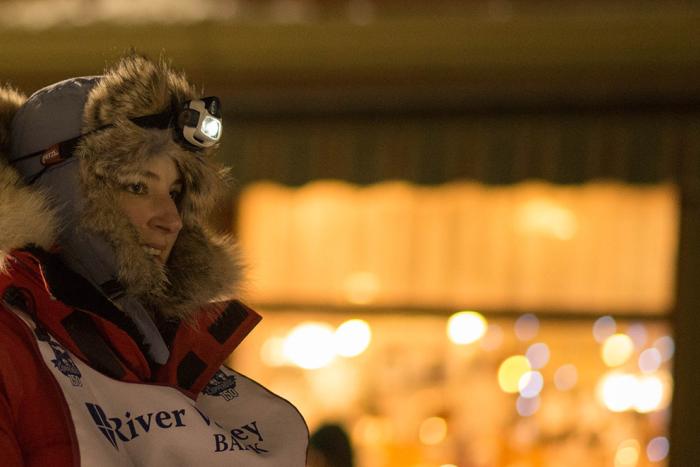“Speaking of death
and decay
it hardly matters
Which
since we both are on the
way, maybe—
to being daffodils.”
-Once, Alice Walker.
“This thing is constantly aspiring to be a man or a woman, and never achieving it—here, surely, is death but death strung out over a whole lifetime; here, surely is life, but life that death congeals before abolishing.”
-War and the Iliad, Simone Weil
Two years ago I almost died. Or at least, I guess, I thought I had died. Or, sometimes, I think: maybe I actually did die, and all that I’m feeling now is an alter-reality, the sweet aftermath of my young and unfortunate death.
I almost died—or actually maybe died—on the cold tiles of the bathroom floor in my uncle’s house in Dhaka in the last week of March, right through to the first week of April, 2014. It was a long, drawn-out event, my frail body spewing out its contents for two weeks. I had contracted dysentery. The nerd in me found this quite impressive: through my congealed vomit I remembered how young soldiers in World War One had also died of a similar disease, of a similar painful protraction. For two weeks my body couldn’t process a thing. I would puke out coconut flesh, and shit out murky bloody water; I couldn’t, and didn’t, eat solids for days at a time. I felt hollow, but also strangely alive in my deathly stillness. Nothing felt normal, but in those moments, on my knees, my innards strewn across the stench-filled bathroom floor, I felt so close to my mortality, and thus so close to the conceptualized state of being. I saw my own broken cavity through a looking glass, and for the first time realized: That’s me. A rare instance of solipsistic self-objectivity.
As I lay dying (literally) I thought of the fickleness of our bodies, and, yet, the daily strength it takes to just be, to just survive. How could I have hated myself for those many years, when my body, each day, despite being brutalized by my mind’s weakness, kept going, kept moving, oh baby, oh baby. How could I hate something that was a privilege, this body of mine?
When you are stripped of all your regularities, you begin to see existence through a strange portal, a mystical mirror. Everything shifts, and so the presence of death, not so ironically, becomes the perfect absolution. It brings you closer to yourself, it brings you closer to God. In those instances, something magical happens; within the state of almost dying you truly begin to practice living. Your consciousness hits a point of enlightenment; the boundaries of your own mortality.
*
I have always thought about dying with a punchy, cacophonous obsession.
When I was ten years old I was too afraid to sleep in my own bed, and would regularly sneak into the middle of my parents' queen, like a life-size pillow I would weave my way through, a caterpillar waiting its cocoon. Then, unable to fall back asleep, I would stare up at my dad’s triangular black nostrils and see stars, see a whole ecosystem, and think about dying. Around the same time I learnt about Nostradamus and properly conceptualized that dying meant not >>existing<< anymore, and therefore my mind, which I privileged beyond anything else, would one day cease to exist. I started sweating profusely as I lay there, between my adult-sized parents, thinking and rethinking what it meant to die. Circling my projections in my head, I questioned my mind, again and again, this apocryphal awakening:
What would it mean to not be alive?
What would it feel like to not be anymore?
Would I feel it when happened, when my spirit dissolved?
What kind of strange cruelty that we were forced out from our mothers’ wombs right into this sticky mess. Only to pay our dues, and then bid adieu once again when our time was up, black stars beckoning our souls, back to the abyss from whence we came. The fear of dying was intoxicating, like strumming alcohol strung out from nerve to nerve. From the age of ten onwards, I started having regular anxiety attacks about death. Avoiding it like a trigger warning. Most recently it happened while watching Emma starring Romola Garai, eating homemade ramen that turned blue and cold as my heartbeat stuck like bile in my clumpy throat; the first time when I was cocooned in that bed, between my mother and my father.
*
My young parents first landed their feet in Canada in the ‘80s. Excited by the new world around them, they had an interesting battle with the perversity of greed; what it does to you; how it usurps the inquisitive beauty of being; how it makes you ill and anguished, never satiated. As young socialists who came from a land where poverty was expansive, and tangible, they knew little of the workings of white people, and the unnecessary entitlement of money. For my parents, the gulf between wanting, and the possibility of getting, was always too large. But, capitalism emphasizes that the mild feeling of benign knots in your stomach can be put at ease with just a little bit of this, or that, or something—that thing you've never had before, but trust me, it’s good.
Capitalism makes you feel that quenching your desire should be the main objective of your humanity, that as a sentient being with a reasonable amount of intelligence, you should endeavor to want for things and then acquire them. Greed reminds you of your failings and promises you a better life. And, maybe, for a few prize years (for some their whole lives) you take what isn't yours as an elixir against death. You mistake the objects you have as your own trusted companions, and within your self-made cloud, you forget that you will have to say goodbye to this earth, one day, and that your flesh will become ash, so soon.
It feels sincere to be awake with the knowledge of death.
As a way of challenging capitalism, my parents weren't just content to live, they needed to understand the nature of our meanness, and our little hypocrisies. They explored their mortality, and the privileges of being alive with so much access, so much ostensible advantage, by focusing on how capitalism cheats you into thinking that your greed is paramount to your own sanity, to your entropic happiness. Greed is a denial of mortality, my father would tell me. It’s a dilution of reality, of rationale. Capitalism is a reification of the idea that individual pleasure is better than collective empowerment, because capitalism is the abstract philosopher’s stone. We buy to cheat death, we buy to avoid thoughts of dying. This resonates in the vast landscape of the emptiness that I oftentimes feel usurp the Western experience.
My mother conserves everything. In Australia, where she now lives, hers was one of the first households to have solar panels on the roof. She wastes nothing. That wet, insoluble paper towel can be used again; all food can eventually be mulch; drops of water are watched thoroughly by her leering eyes. When we were younger, for weeks at a time in our home in Sydney, we would wash ourselves from a leaking tap that would drip into a cherry red bucket, our mainline water source. It would frustrate me so—I wanted a showerhead! I wanted to feel the strokes of water pulse through my dirty hair! I mistook these acts of her control as stinginess, but as I got older I began to understand that conservation was a means of honoring the world, and nature, and about confronting her own greed, waste—and most importantly, her own inevitable death. Sometimes, even now, when I ask her to explain why she does it, she tells me, in Bangla, which is far more poetic, “Ēkadin āmarā maratē habē, ēbong ē'i sab āra thākabē nā.” One day we will have to die, and all this will be no more.
*
Death is the closest thing to zero. As a compound; no more. Death is cyclical like the oblong of a zero’s curves.
Japanese culture has a constant awareness of death through mono no aware, which means the “pathos of things,” an acknowledgment in the ephemera of the universe. This has been adopted into wabi sabi, a way of life through aesthetic, which is the nexus in which Japanese culture operates. It permeates art, and architecture, with an understanding that things are made more beautiful by their impermanence, and thus imperfection.
In Arabic there’s dhikr al-maut which is the remembrance of death, similar to the Latin phrase of memento mori which translates as “remember that you can (or will) die.” The cultural understanding of our intimate end calms me with a faint reverie. It feels sincere to be awake with the knowledge of death, for it to consume you as a constant reminder. Not to be feared, but to be remembered. Being aware of death is like a state of constant meditation. What lies behind the locked door of death is unknown, but in its abstractness it’s almost cosmic.
*
I have tried to kill myself three times; my mother has tried to kill herself over thirty. As I get older neither fact is as bleak as you would think it to be, maybe because my mother and I have some strange proclivity to death, as though it’s a hymn that sings its tune and we are swayed by its pull at any painful turn. Whenever I think of killing myself, these days, however, I am reminded that in Islam there’s an understanding that if you commit suicide you will never enter the gates of heaven, but repeatedly die the way you ended things; your very own self-imposed Promethean fate.
When I was in my teens, some days my mother would write a tawdry suicide note, walk out the door in the afternoon, and be back by dinner. Tepid, and silent, a harrowing sight. I guess we both craved the gentle lull of death’s imagination, as it was better than our reality. Reading The Bell Jar at thirteen, she reminded me so much of Sylvia Plath. Other teens were charmed by Plath’s insouciance. No, for me, Plath was my mother, Ted Hughes my father, and my sister and I Frieda and Nicholas. Death was always a solution for my mother, and therefore for me. Those eerie and awful accidental bromides that our mothers teach us. Plath wrote in Winter Trees, “The surgeon is quiet, he does not speak. He has seen too much death, his hands are full of it.” To be full with death as if to control it; to be full with it so much that it always lingers, pervasive in every touch, in every sentence.
“Dying
Is an art, like everything else.
I do it exceptionally well.
I do it so it feels like hell,
I do it so it feels real.
I guess you could say I’ve a call.”
Do I look back in pain for my history, for my childhood that was torn between dramatic acts of self-harm, and my own mother’s violent despondency? Most days; no. I think, with a searing blindness, the cocky self-destructive attitude of both hers and mine obscured my sanity, severing my anxiety in half with violence turned inward. Because, back then, death was like an absent abusive lover; you wished for its embrace at every awkward painful turn, hoping this time it’d finally do the job. Death seemed like an option because it felt like the end, the end of everything, the end of me and my pathetic life, and hers.
The “death wish” is a desire to return to the womb, William H. Gass explains in Life Sentences, and the root of that theory lies in the Freudian concept of the “death drive.” I used to play my trauma on loop, because there was something comforting in self-destruction, in performing my pain again and again. I understand this to be my ego, playing the masterful disguise as my savior, because when I fell, I fell so completely, and so I craved total obliteration.
Have you ever played and replayed a memory so many times, and at the end, every time, you die? A few summers ago, high on MDMA at 3 in the morning, I went to an art deco loft on Avenue du Parc in Montréal, a stunning twenty-or-so metres high, for a best friend’s party. A large window framed the side of the room, open and breezy, and as I watched its haunting I began to dance to an unknown song with a crepuscular fervor. I danced with a soft lull, a short spring, sway to and fro, silently creeping, getting closer and closer to the open window, wide and gaping with freedom. My rationality, and hidden sobriety, moved me away from my self-destruction, but my anxieties kick in every time I replay that memory, the soft hush in the ear wondering if I had jumped, or been pushed, or fallen, where would I be now? For in my dreams I tipped over, falling straight onto the black fence beneath me, like one of the five sisters in The Virgin Suicides. Death in the air, “Now this would be a beautiful death/Jumping out the window/Letting everything go,” humming in my ear as I fell, splat.
Amor fati—what is our fate if not death? The low muttering of death’s song haunts me like a threnody to myself. Is it repugnant that I think about the noises of death? What does one hear when they’re about to fade into the dark abyss of our final form? This is my dark secret. I think too fondly, and once too often, about dying.
*
I have both a best friend and an ex-lover whose houses, as kids, were burnt down in small Canadian towns. I found this out after the lover and I had split and Z, my friend, told me over white wine, with a passing tone of this grave shared experience. They knew each other, and had possibly each lamented to the other about the loss. I became fixated on a household fire as an act of death. Do we sing a dirge for those items, lost, in and out of our control?
Shouldn’t we all practice that kind of goodbye? I thought, once she told me.
When I was ten years old I walked into an old man, in the streets of Kuala Lumpur, whose eyes had been scooped out of his face, the sockets waxy, caramel and taut. He braced for my hand, but I turned in fear. Allahu Akbar, he said again and again, don’t turn away from God, he reminded me, death is at our door, always. Sukrât al-maut in Arabic means the rapture, the intoxication of the dying person’s last breath. I looked at him and all I could see was death.
*
Our ontological inquiry is that we are alone and what then? Is there a pause, period or question mark after loneliness? What is it punctuated with? We’re all so terrified of living because we’re scared of dying; that’s it—that’s what drives us: the fear. So we stand still, knees buckled, stomachs pulled in like a tightrope: how to learn how to die? Wouldn’t that be our biggest relief, the sigh that we could use as momentum? I can crave the alluring accents of death’s praise all I want, but the reality is that it’s inevitably your fate, and mine; sanctifying it won’t lessen the blow.
I’ve looked at my depression with fondness, like an old friend whose rhythms I’m beginning to understand, but in reality my littered past, with all its sadness, has begun to bore me. Now that I know what it’s like to feel your veins turn cold as your body slowly turns on you, as I’ve felt what illness does when your body fights to live, I no longer wish for its end, for its demise.
As I'd lain there dying on the cold, acid-wreaked tiles I realized I didn’t want to die, not really.
I’ve been wondering recently whether the metamorphosis of blooming into the state of real existence is understanding and accepting this fate, our whole fate; that death is our absolute fate, even if the act itself is not absolute. If we navigate within this paradigm, knowing that one day the thrills that we seek, the people we’ve destroyed, ruined and deceived, will come to an end, because one day our bodies will be dust, maybe then, within that understanding, we could be better as a people. Living within the aegis of my ever-looming death has been a vibration I’ve always sought, it’s the reminder I always needed: not tomorrow, today. It’s pushed me out of my large vacuous pain I once proselytized to myself, and others, and, instead, it constantly stands as a reminder that death is not to be lamented, as it’s our humble, and assured, final constellation. Rich and poor, no matter how many Nixonian cryogenic bodies we amass, one day we will still have to die.
In the Paris Review memoriam of David Bowie, they wrote, “He’d been planning for death like a Roman.” Nothing seemed as beautiful, as hypnotic or devotional as the self-reflexive state of focusing on how to pass blissfully into our next form. If we could all remember this, with the sentiment it deserves, we could live a powerful existence. This life is precious, I found out. If we were to turn ourselves inwards, and see the beauty that exists in life, in its thrills and passions, in the blazing halo of the moon, in the large yellowness of the sun so expansive and luminous, the colors of the seas and sky, couldn’t we move closer to our pure design, the one to be better human beings? Isn’t our evolution as people to be better? Smarter, yes, but also to be kinder? More generous? More cognizant of our humanity? The transience of human life flashes by so fast, alarming and paralyzing, so all we have is now, right now.
Focusing on that has been my salvation. I’ve embraced death, finally, in a beautiful way. In a way that is no longer about me. No longer mourning me, but celebrating everyone, and life. There’s no jeremiad I should sing for your death, or mine, because almost dying brought me back to life, because almost dying taught me how to really live.






